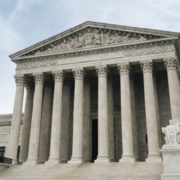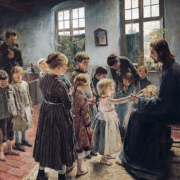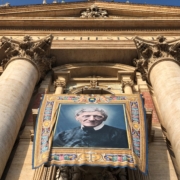Fire Theologians, Not Columnists
There is more than irony in the recent attempt by several theologians to discredit New York Times columnist Ross Douthat, because he dared to write about the tragic confusion surrounding the Synod on the Family without having a theologian’s “professional qualifications.”
There is great desperation in the move — and hypocrisy.
The hypocrisy lies in the demand for credentials, when the field of theology is itself seriously lacking in that regard.
About half of Douthat’s critics are professors of theology at Catholic colleges and universities. Under canon law, they must have the mandatum, a recognition from their local bishop that they pledge to teach in fidelity to Catholic doctrine. But do they? At least a few seem to be headed in the opposite direction.
Under current policy in the United States, it’s difficult to know whether a theology professor has the mandatum, because most theologians won’t say — and neither will their college employers or their bishops. The mandatum is deemed a private matter between the theologian and the bishop, and even many Catholic colleges do not require the mandatum for employment. Students who need to know whether or not a professor has complied with canon law are in the dark.
In James Caridi’s 2011 survey of U.S. Catholic college and university leaders, 36 percent said they did not know whether their theology professors have received the mandatum, 10 percent said some but not all of their theologians have received it, and another 6 percent said no professors have it. When The Cardinal Newman Society followed in 2012 with a request to America’s 10 largest Catholic universities to disclose which of their theology professors have the mandatum, the few that responded admitted that they do not collect such information.
Pope Benedict XVI pressed the issue in May 2012 during the ad limina visit of several American bishops. Urging “compliance” with Canon 812, which requires the mandatum for teachers of theology, the Holy Father said:
The importance of this canonical norm as a tangible expression of ecclesial communion and solidarity in the Church’s educational apostolate becomes all the more evident when we consider the confusion created by instances of apparent dissidence between some representatives of Catholic institutions and the Church’s pastoral leadership: such discord harms the Church’s witness and, as experience has shown, can easily be exploited to compromise her authority and her freedom.
Cardinal Raymond Burke, when he was prefect of the Apostolic Signatura and Rome’s chief expert on canon law, told the Newman Society that “tangible” means the mandatum should be publicly acknowledged:
It’s tangible in the sense that it’s a public declaration, in writing, on the part of the ecclesiastical authority that a theologian is teaching in communion with the Church, and people have a right to know that so that if you, for instance, are at a Catholic university or parents are sending their children to the Catholic university, they know that the professors who are teaching theological disciplines at the university are teaching in communion with the Church.
There is, of course, no similar requirement in canon law that a New York Times columnist be properly credentialed by the Church to opine on Church matters. So it is preposterous that theologians would demand “professional qualifications” from a journalist, while their own profession apparently lacks compliance with the Church’s canon law.
So why attack Douthat? The answer may lie in the theologians’ second charge, that Douthat favors a “politically partisan narrative that has very little to do with what Catholicism really is.” This seems to be another case of the pot calling the kettle black; the driving motivation behind today’s “progressive” Catholics seems to be quite political and secular, and not rooted in faith. The loosening of Catholic mores with regard to sexuality and marriage for “pastoral” reasons has been a key objective of both political and religious progressives since the 1960s.
That’s where I see desperation in the theologians’ move against Douthat. He has challenged the apparent scheming by some parties to control the outcome of the Synod, which centered on this loosening of attitudes toward marital and sexual sin. Pope Francis had opened the doors wide to frank discussion and debate. The progressives saw the opportunity to bum-rush the Church.
But that largely failed. And now that Douthat is issuing warnings that could help thwart anything they hoped to gain, the ivory-tower theologians have lashed out in despair.
The response of many Catholic pundits has been to rush to Douthat’s defense, and rightly so. But I propose something more:
It’s time for Catholics to demand that those who teach theology in Catholic institutions commit to complete fidelity to Catholic teaching, make that commitment publicly known, and refrain from using their academic prowess to oppose those who faithfully seek the good of the Church.
And if theologians can’t abide by those expectations, they should at least find an ivory tower that doesn’t bear the label “Catholic.” Or become columnists.
This article was originally published by National Catholic Register and is reprinted with permission.


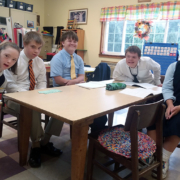

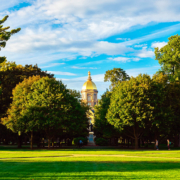 Photo by David Mark via Pixabay CC0
Photo by David Mark via Pixabay CC0